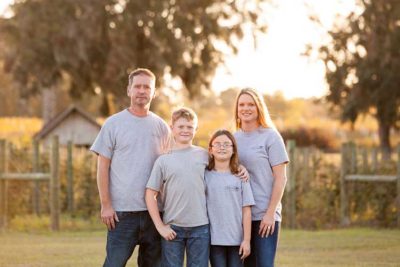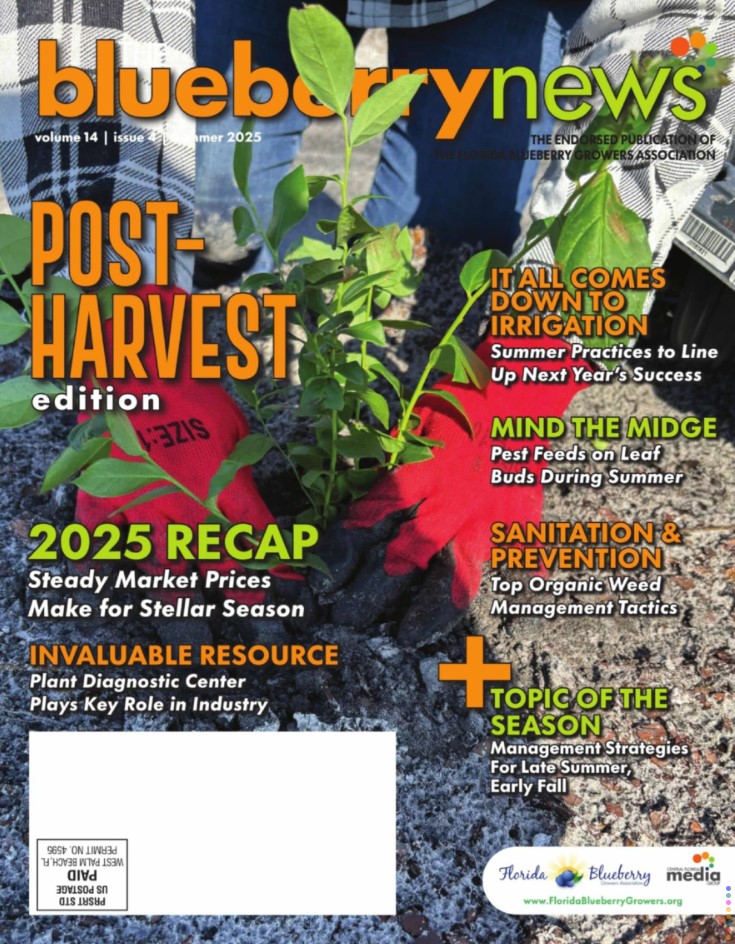
Dustin Lowe, Owner of Lake Catherine Blueberries in Groveland, Shares His Thoughts on This Growing Trend
The 2017 Census of Agriculture, which is conducted every five years by the United States Department of Agriculture, is still well underway and actively receiving responses from farmers through the spring. According to an official release on February 27, 2018, over 40 percent of the 3 million questionnaires mailed last fall had been returned to the USDA. When complete, the 2017 Census of Agriculture will reveal much about agribusiness practices, including whether agritourism has continued to grow in the last five years.
The most recent data from the USDA Census of Agriculture shows an exponential increase in Florida farms offering recreational experiences. In 2012, the number of agritourism operations in the Sunshine State was 724, jumping up from only 281 in 2008. What accounts for this upward trend, and will it continue to rise? A recent blog by UF/IFAS Extension Agent Mary Beth Henry aptly points to recent changes in Florida law that support agritourism, which may continue to spur its popularity.
But what’s the word on the ground level and is it a worthy venture for growers? To help answer this question, The Blueberry News asked Dustin Lowe of Lake Catherine Blueberries in Groveland, Florida to elaborate on his experience with agritourism and how he feels it is changing the landscape of Florida farming.
The Blueberry News: How’s the agritourism aspect of blueberry farming going in general?
Dustin Lowe: Our U-Pick portion of the business has been growing exponentially for several years running. Here at Lake Catherine, we try to add to the experience every season. For example, before last season we added a food truck and an alcohol license. We are very fortunate that my wife, Jamie, has over 20 years of experience in the food and beverage industry. She created the menu and the craft cocktails we serve on the farm.
TBN: Why is it worth the effort to take on this aspect of growing blueberries?
Lowe: Usually, once the Georgia crop hits its peak, our market price falls to the point that the margins are very tight. We would rather open our homes and farm to the public to add an additional stream of income to support the farm. Why give your hard-earned money to packing houses and marketers, and profit very little per pound? Our entire family also enjoys educating the public about farming. During the month of May, we have school field trips on the farm every day from Monday through Friday.
TBN: What advice might you have for proper signage in U-Pick areas? Any legal tips for other growers who may want to get involved?
Lowe: These two questions go hand-in-hand. Farmers need to be aware of Florida Statute 570.96. This is commonly referred to as the “Agritourism Bill.” This limits a farm's liability when they invite the public on the property. It is very important to understand the statute and follow it's specific instructions. The placement of signage, as well as the format required for the signs, is spelled out in the bill. For example, the minimum size for each sign's letters is included in the law.
For more information about the agritourism law, go to the recent UF/IFAS EDIS publication.





